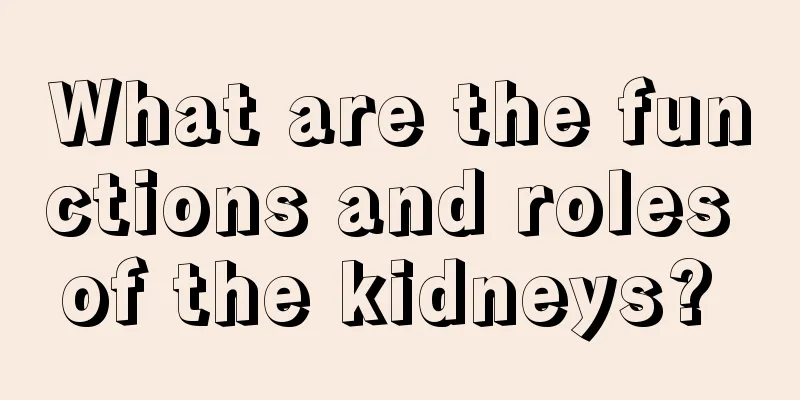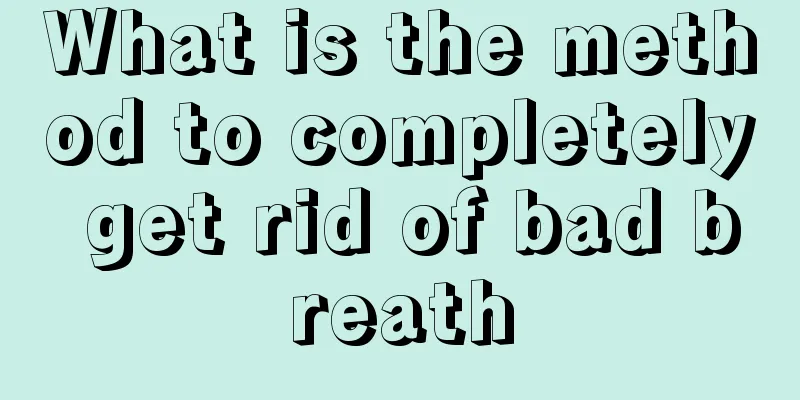What are the functions and roles of the kidneys?

|
The kidney is one of the most important organs in the human body. For most of us, the kidney is understood as the place where urine is produced. In fact, the excretion of urine can help the human body excrete toxins and waste, and also help the body absorb a certain amount of water and other elements. Of course, this understanding is only superficial, so what are the functions and effects of the kidneys? 1. Excrete metabolic products and harmful substances that enter the body The human body is metabolizing every moment. In this process, some unnecessary or even harmful wastes are inevitably produced. A small part of them is excreted through the gastrointestinal tract, and most of them are excreted through the kidneys, thus maintaining the normal physiological activities of the human body. In addition, the kidneys can excrete some toxic substances that enter the body. Some chemical poisoning can cause damage to the kidneys because these chemicals must be eliminated through the kidneys. If the kidneys are diseased, the excretion of these harmful substances will be affected, and waste will accumulate in the body, causing various diseases. We figuratively call the kidney's function of retaining nutrients and excreting toxins a "blood sieve." 2. Maintain water balance through urine production This is the main function of the kidneys. When blood flows through the glomerulus, due to pressure, a liquid called primary urine is filtered out that is similar to plasma but does not contain protein. When the primary urine passes through the renal tubules, most of the water, all of the sugar and part of the salt are reabsorbed and sent back to the blood, but most of the nitrogen is no longer absorbed back. The remaining concentrated fluid containing residual substances is urine, which accounts for about 1% of the original urine. The normal daily urine volume is 1000-2000 ml, which is generally light yellow in color and has a specific gravity between 1.003-1.030. If the specific gravity is too high, too low, or remains unchanged, or the urine volume is too much or too little, there is a possibility of renal insufficiency. 3. Maintain electrolyte and acid-base balance in the body The kidneys regulate various ions (electrolytes) in the body. For example, the regulatory characteristics of sodium ions (Na+) are more excretion if you eat more, less excretion if you eat less, and no excretion if you don't eat; for potassium ions (K+), it is more excretion if you eat more, less excretion if you eat less, and excretion without eating; for chloride ions (Cl-), it is completed through the absorption and excretion of Na+, and the secretion process of H+ and ammonia (NH3). In addition, the kidneys also regulate the balance of ions such as phosphorus (P3-), calcium (Ca2+), and magnesium (Mg2+). The balance of these electrolytes is important for the osmotic pressure stability of body fluids. In addition, the kidneys also regulate the acid-base balance in the body. The kidneys can excrete acidic substances produced during metabolism through urine, and can control the ratio of excretion of acidic and alkaline substances. When any substance increases in the blood, the kidneys will excrete the increased part. At the same time, the kidneys can also produce ammonia and hippuric acid to maintain and regulate acid-base balance. Many kidney patients suffer from acidosis because the kidneys lose the function of maintaining the acid-base balance in the body. We might as well call the kidney's function of regulating the body's water and maintaining the stability of the internal environment (electrolytes, osmotic pressure, acidity and alkalinity) a "regulator" or "stabilizer." 4. Regulate blood pressure Renin secreted by the kidneys can increase blood pressure. When sodium intake is restricted or sodium is deficient, plasma volume is reduced and renal blood perfusion pressure is reduced, as well as when the patient is in an upright position, renin is secreted from the cells and becomes active, which can depeptide angiotensinogen in plasma to become angiotensin I, which is then converted into angiotensin II through the action of the converting enzyme. Through the action of angiotensin II and aldosterone, blood pressure is increased. At the same time, prostaglandins secreted by the kidneys have the function of lowering blood pressure. Prostaglandins mainly achieve the effect of lowering blood pressure by increasing renal cortical blood flow, promoting diuresis and sodium excretion, reducing peripheral vascular resistance, and dilating blood vessels. 5. Promote red blood cell production The kidneys can secrete erythropoietin, which acts on the bone marrow hematopoietic system, promotes the differentiation and maturation of primitive red blood cells, promotes the bone marrow's uptake and utilization of iron, accelerates the production of hemoglobin and red blood cells, and promotes the release of bone marrow reticulocytes into the blood. The degree of anemia is proportional to the degree of renal failure. The erythropoietin in the blood and urine is reduced. Exogenous erythropoietin can correct renal anemia. 6. Promote the activation of vitamin D Vitamin D must be converted into 1,25-dihydroxyvitamin D3 by the kidneys in the body to exert its physiological effects. The cortical cells of the kidneys contain 1-hydroxylase. Vitamin D is first converted into 25-hydroxyvitamin D3 under the action of 25-hydroxylase in the liver, and finally converted into 1,25-dihydroxyvitamin D3, i.e. activated vitamin D3, under the action of 1-hydroxylase in the kidneys. It can promote the absorption of calcium and phosphorus in the gastrointestinal tract; it can promote bone calcium transfer, promote bone growth and cartilage calcification; it can promote the reabsorption of phosphorus by the renal tubules and reduce urinary phosphorus excretion; it can inhibit the secretion of parathyroid hormone (PTH). |
>>: What is a big heart disease and is it serious?
Recommend
Abducens neuritis
Many people are not particularly familiar with ab...
Paying attention to the causes of kidney cancer is the only way to prevent this disease
Nowadays, more and more people are suffering from...
How long does ginger slices take to be effective in removing scars
Ginger is a very common seasoning in our lives. B...
Is there any good dietary treatment for rectal cancer?
Rectal cancer is a common malignant tumor in the ...
What is the huge harm that thyroid cancer does to the human body
What are the great harms of thyroid cancer to the...
Avulsion fracture taboos
There are many types of fractures, and there are ...
What are the effects of agarwood essential oil
More and more people know how to maintain their s...
What are the treatments for heart failure
Heart failure can be said to be a patient's h...
A brief discussion of the three most common early symptoms of skin cancer
Skin cancer is a tumor disease caused by daily ex...
The fastest way to get rid of a red nose
If female friends find themselves with a red nose...
What is the normal value of carcinoembryonic antigen? There are several ranges
The normal value of carcinoembryonic antigen refe...
What are the benefits of washing your face with sea water
Washing face is something people do every day, be...
Research progress of ovarian cancer
Ovarian cancer is the third most common gynecolog...
What should I do if lymphoma has spread?
Lymphoma is a common malignant tumor and a system...
Can pig blood help detoxify the intestines?
Pig blood is a delicacy on the dinner table. In a...









